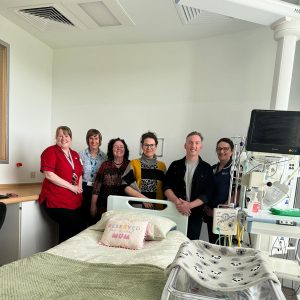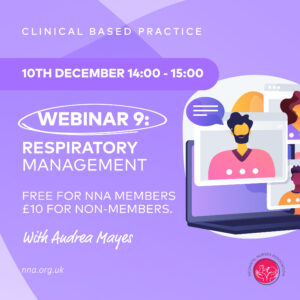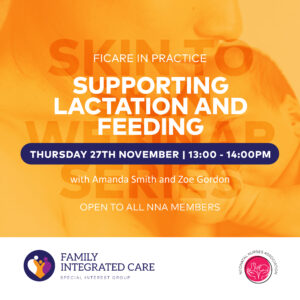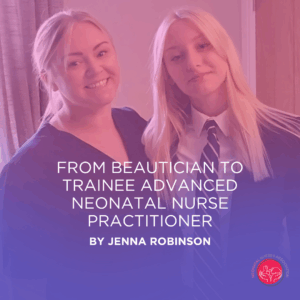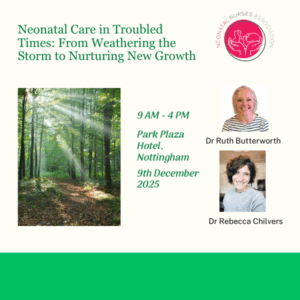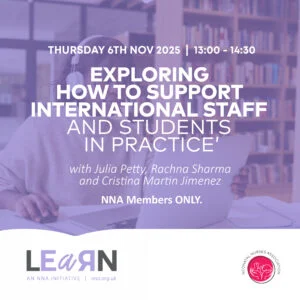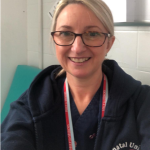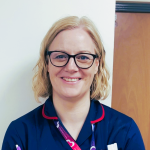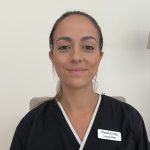Network structures vary around the country, but many employ a Deputy Director or a Senior Lead Nurse. This role acts as a line manager to the wider network team, including QIS nurses, Care Coordinators, AHPs and Education team.
As a senior lead nurse, you would be required to support and manage each team as they navigate their work programme. The role also includes responsibility for leading region-wide projects and linking regional teams with wide regional and national initiatives.
Before you can apply for this role, you will need to gain extensive experience across a number of neonatal nursing roles including management, education, advanced clinical practice. You would also benefit from experience within a network role and being involved in national groups, which provides experience outside of your neonatal unit.
Nursing voice
Hello, I’m Robyn Smart – I work for the South West Neonatal ODN as a Senior Lead Nurse.
My role has grown over the course of my seven years in post. One of the joys of working as part of a network is it’s ever evolving and changing in shape. I am proud and feel a sense of privilege to work in this role, particularly as we are able to adapt and support the wider needs of neonatal services within our region.
My career has been exciting and I’ve been grateful to have been inspired from an early stage by committed and passionate senior nurses. I’m thankful for the opportunities that have presented themselves to me and enjoyed a variety of different development activities. My clinical background has been in tertiary neonatal services in a busy city, working my way from a newly qualified Band 5 to a Band 7 Neonatal Sister.
I’m grateful to work as part of a network that values and demonstrates appreciation for the whole neonatal pathway journey that a family might embark on, and enjoy exploring the different strengths within the units that we support.
I have completed a number of different leadership programmes, enjoyed advancing my communication though the use of coaching and mentoring. All of which have supported my confidence when working in such a varied role.
As a nurse within the network – I have a number of responsibilities, Workforce planning and development, Network Governance, Team support and leadership. I am good at holding lots of information in my head, and making connections with various work streams, which supports continuity of projects across the region, as well as strengthens the fruitfulness of the regional work we engage in.
Governance is a significant role of Neonatal Networks – we work collaboratively with neonatal services to provide oversight of the neonatal pathway, though the use of data and regional process. We work hard to ensure that neonatal services are working in alignment with the National Neonatal Service Specification, and are close stakeholders of NHS England, both regionally and nationally. We note trends and themes across a range of different processes. Some of which include, Incidents, Risk, Exceptions, Workforce, Operational Escalation, Guidelines and Policies and Sharing learning and disseminating good practice.
It’s a hugely varied role, with lots of different interesting elements. My strategic perspective and ability to think outside the box allows me to explore neonatal governance in a different way, with a strong focus on compassionate leadership.
Building connections and relationships has always been what I’m pulled towards. While I enjoyed clinical nursing, my passion has always been for listening and understanding more about families to help improve neonatal services, and supporting staff to maximise their professional potential.
If you’re interested in learning from experience, feedback and listening to what’s worked well…and what hasn’t worked so well sometimes, then regional governance might be an interesting place for you.

